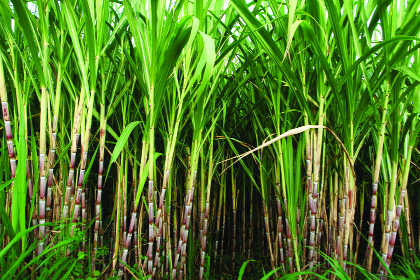
Photo for representation
Vibha Sharma
Chandigarh, December 9
The Centre’s decision on the use of ‘sugarcane juice and sugar syrup’ for ethanol production in the 2023-24 supply year appears to have caused much unhappiness among mill owners and distillers.
The government on Thursday issued a directive instructing all sugar mills and distilleries to refrain from utilising sugarcane juice or sugar syrup for ethanol production in the ethanol supply year (ESY) 2023-24, effective immediately, to maintain adequate sugar availability for domestic consumption and keep prices under check.
However, the use of ‘B-molasses’ for ethanol production in 2023-24 is allowed, a move that was welcomed by sugar industry bodies. “Supply of ethanol from existing offers received by Oil Marketing Companies (OMCs) from B-Heavy molasses will continue,” according to reports.
The government has already banned export of sugar.
Rising sugar prices
The decision to curb the use of sugarcane for ethanol production was led by an increase in domestic prices of sugar in the pre-election year as compared to last year. Experts say sugar prices may drop by “at least 5%” due to the move.
India is the world’s second-largest sugar producer and also a major exporter.
The ban is one of the measures being taken by the Centre ahead of the 2024 Lok Sabha elections to keep a check on prices of food items and boost availability in the domestic market.
However, the move also saw shares of sugar and ethanol manufacturers decline in the stock markets this week.
Ethanol programme on track
Sugarcane and its by-products like B molasses are the major source of ethanol production in India. Other sources for producing ethanol are corn, rice and barley.
Reports quoting industry majors say that the decision may impact investments worth around Rs 50,000 crore—that is the money put in by millers and distillers for setting up and enhancing the capacities of ethanol production plants.
Amid reports of mill owners expressing unhappiness and predicting losses, sources say the government is considering buying extra corn at the MSP to keep up the supply of raw material.
Officials also add that the decision will not impact the country’s ethanol blending programme. MoPNG secretary Pankaj Jain was quoted as saying that the government planned to achieve 15% blending in petrol in 2023-24 and 20% by FY25-26.
The National Federation of Cooperative Sugar Factories (NFCSF) (the apex body of all cooperative sugar mills and distilleries from across the country) was quoted as saying that the “sudden implementation of this rule will disrupt the industry and tarnish the image of India in the international market as the country is leading the movement for green energy and fuel with a thrust on using ethanol”.
Environment-friendly ethanol
Ethanol blending helps India save on import of crude oil and foreign currency reserves.
It also protects the environment from the burning of fossil fuels.
Speaking on World Environment Day in 2021, Prime Minister Narendra Modi called ethanol as one of the major priorities of 21st century India.
The country will achieve the target of 20% ethanol blending in petrol by 2025, he also said.
The earlier target was 2030.
Public sector oil marketing companies (OMCs) started selling E20 petrol in February 2023 and it is currently being sold at more than 1,900 retail outlets across the country.
The government is promoting biofuels with the broader objectives of reducing import dependency, generating employment, providing better remuneration to farmers, for associated environmental benefits, promoting better waste management practices, etc, say officials.
E20 blending in petrol was introduced with aims like reducing the country's oil import cost, energy security, lower carbon emission and better air quality. It is projected that by 2025, the use of E20 fuel will contribute to the reduction of more than 200 lakh tonnes of GHGs.
Join Whatsapp Channel of The Tribune for latest updates.




























